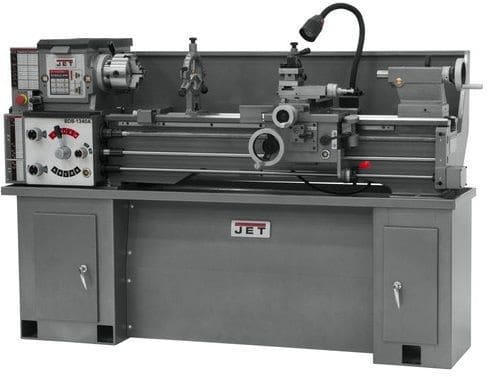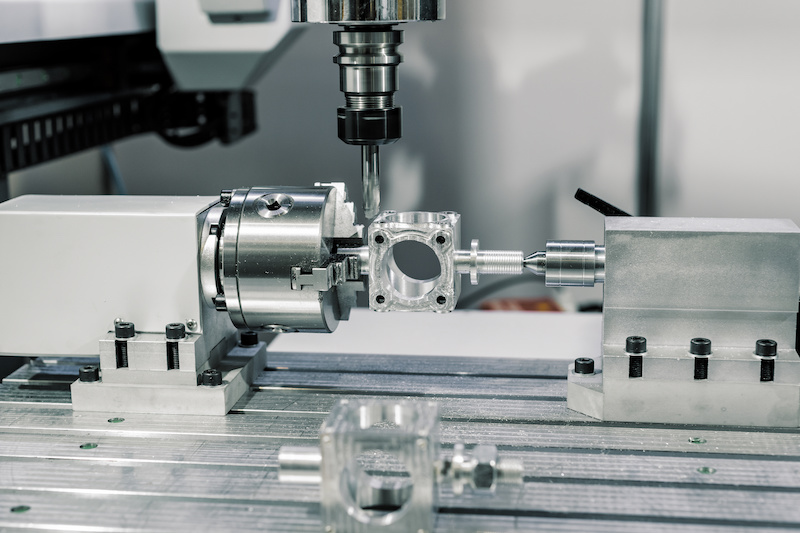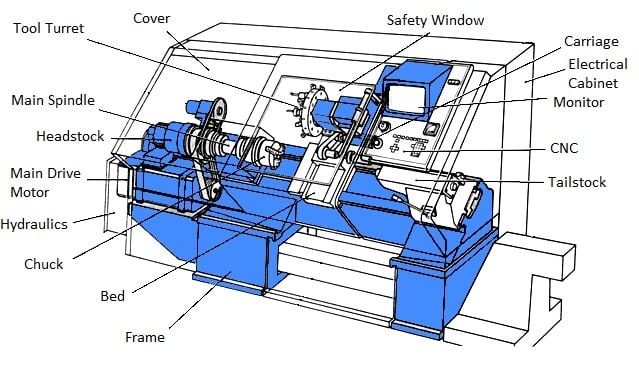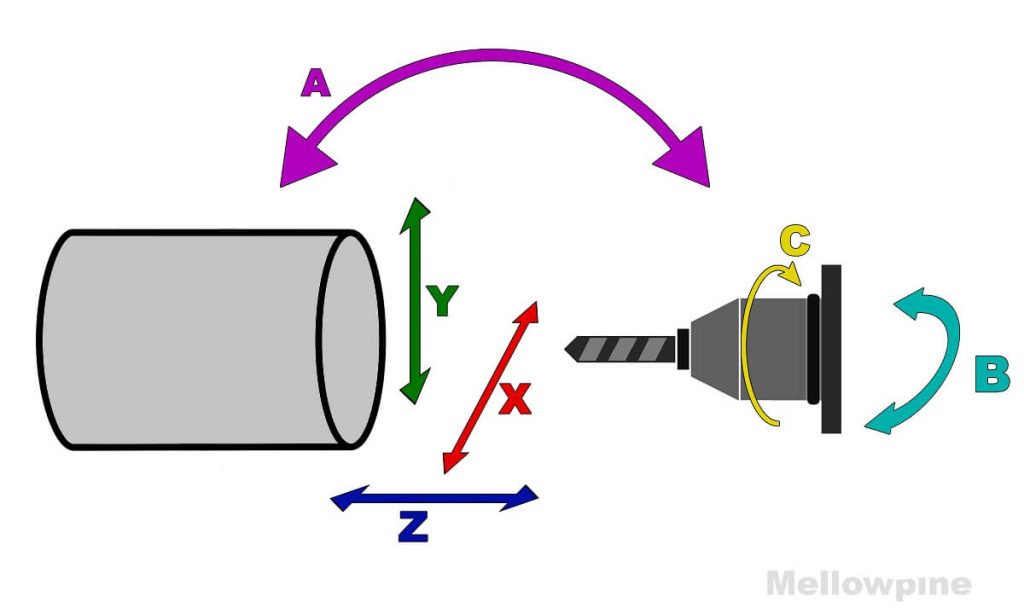Table of Contents
CNC lathes are powerful machines that are used to shape and cut materials with precision. These machines are widely used in various industries, such as manufacturing, aerospace, and automotive. One question that often comes up is, “How much does a CNC lathe weigh?” This is an important question to answer, as the weight of the machine can impact transportation, installation, and overall functionality.
The weight of a CNC lathe can vary greatly depending on the size and model. Generally, smaller machines can weigh anywhere from a few hundred pounds to a few thousand pounds. Larger machines, on the other hand, can weigh tens of thousands of pounds. It’s important to know the weight of a CNC lathe before purchasing or transporting it to ensure safety and proper handling. In this article, we’ll explore the different factors that can affect the weight of a CNC lathe, as well as some common models and their respective weights.
A CNC lathe can weigh anywhere between 500 to 35,000 pounds, depending on its size and specifications. The average weight of a medium-sized CNC lathe is around 7000 pounds. The weight of the lathe also depends on the material it is made of, such as cast iron or steel. It is important to consider the weight of the CNC lathe when planning for its installation and transportation.
How Much Does a CNC Lathe Weigh?
A CNC lathe is a machine that is used to cut and shape materials such as metal, wood, and plastic. It is a vital tool in many industries, including manufacturing, automotive, and aerospace. When it comes to purchasing a CNC lathe, one of the most important considerations is its weight. In this article, we will explore how much a CNC lathe typically weighs and why it is important to know.
What is a CNC Lathe?
A CNC lathe is a computer-controlled machine tool that rotates a workpiece on its axis to perform various operations such as cutting, drilling, and sanding. It is an essential tool for the production of complex components with high precision and accuracy. CNC lathes come in various sizes and configurations, and their weight can vary significantly depending on the model and manufacturer.
When it comes to purchasing a CNC lathe, the weight is an essential factor to consider. A heavier lathe is typically more stable and can handle larger and more massive workpieces. Moreover, a heavier lathe can absorb vibrations better, resulting in smoother and more accurate cuts. Therefore, it is crucial to choose a CNC lathe that is heavy enough to handle your specific application.
How Much Does a CNC Lathe Weigh?
The weight of a CNC lathe can vary significantly depending on its size, configuration, and manufacturer. Small benchtop lathes can weigh as little as 50 pounds, while large industrial lathes can weigh several tons. Generally, the weight of a CNC lathe ranges from 500 pounds to 10,000 pounds.
The weight of a CNC lathe is determined by its components, including the bed, headstock, tailstock, and spindle. A heavier bed and base provide stability and reduce vibrations, while a heavier headstock and spindle can handle more massive workpieces. Moreover, the weight of the lathe can be affected by its accessories, such as the chuck, tool post, and coolant system.
Benefits of a Heavy CNC Lathe
Choosing a heavy CNC lathe has several benefits, including:
- Better stability and reduced vibrations
- Ability to handle larger and more massive workpieces
- Improved accuracy and precision
- Reduced tool wear and longer tool life
- Increased cutting speed and productivity
Therefore, investing in a heavy CNC lathe can result in better quality products, improved efficiency, and increased profitability.
CNC Lathe Weight vs. Performance
When it comes to CNC lathe weight, there is a trade-off between performance and portability. A heavier lathe is typically more stable and can handle larger workpieces, but it can be more challenging to move and install. On the other hand, a lighter lathe is more portable and easier to install, but it may not be as stable or robust as a heavier lathe.
Therefore, when choosing a CNC lathe, you need to consider your specific application and requirements. If you need a lathe for large and complex workpieces, a heavier lathe may be the best option. However, if you need a lathe for smaller and simpler parts or for on-site repairs, a lighter lathe may be more suitable.
Conclusion
In summary, the weight of a CNC lathe is an essential factor to consider when purchasing one. A heavier lathe is typically more stable, can handle larger workpieces, and provides better accuracy and precision. However, a lighter lathe is more portable and easier to install. Therefore, you need to consider your specific application and requirements when choosing a CNC lathe.
Frequently Asked Questions
Here are some frequently asked questions about the weight of CNC lathes.
How much does a CNC lathe weigh?
The weight of a CNC lathe can vary greatly depending on the size and model of the machine. A small desktop CNC lathe may weigh as little as 200 pounds, while a large industrial CNC lathe can weigh over 20,000 pounds. The weight of the lathe is an important consideration when setting up the machine and determining how much weight it can support.
It is also important to note that the weight of a CNC lathe does not include any additional equipment or accessories that may be attached to the machine, such as a coolant system or chip conveyor. These items can add significant weight to the machine and should be taken into account when calculating the total weight.
How can I determine the weight of a specific CNC lathe model?
The weight of a specific CNC lathe model can usually be found in the product specifications provided by the manufacturer. This information may also be available on the manufacturer’s website or in product brochures. If you are unable to find this information, you can contact the manufacturer directly and ask for the weight of the machine.
It is important to note that the weight of the machine may also vary depending on the specific configuration and options chosen. For example, a lathe with a longer bed or a larger chuck may weigh more than a standard model.
What are some factors that can affect the weight of a CNC lathe?
There are several factors that can affect the weight of a CNC lathe, including the size and configuration of the machine, the materials used in its construction, and any additional equipment or accessories that are attached to the machine. For example, a lathe made from heavy-duty cast iron will generally weigh more than a machine made from lighter materials, such as aluminum or steel.
The weight of the machine may also be affected by any modifications or customizations that have been made to the machine, such as the addition of a larger chuck or a custom tailstock. In general, a larger machine with more features and accessories will weigh more than a smaller, simpler machine.
Why is the weight of a CNC lathe important?
The weight of a CNC lathe is an important consideration for several reasons. First, it can affect the stability and accuracy of the machine. A heavier machine will generally be more stable and less prone to vibration, which can lead to more accurate cuts and better surface finishes.
Additionally, the weight of the machine can affect the cost and complexity of its installation. A heavier machine may require specialized equipment or additional support structures to be installed, which can add time and expense to the setup process. Finally, the weight of the machine may also affect its portability and ease of transportation, which can be important if the machine needs to be moved to different locations.
Yes, there are several safety considerations related to the weight of a CNC lathe. First, it is important to ensure that the machine is installed on a stable surface that can support its weight. This may require additional reinforcement or modifications to the floor or foundation.
It is also important to follow proper lifting and handling procedures when moving or installing the machine. Heavy machinery should be lifted and moved using specialized equipment and techniques to avoid injury or damage to the machine. Finally, it is important to ensure that the machine is properly grounded and that all electrical connections are secure to prevent electrical hazards.
In conclusion, the weight of a CNC lathe can vary greatly depending on its size, configuration, and materials used. Generally, these machines can weigh anywhere from a few hundred pounds to several tons. It’s important to consider the weight of a CNC lathe when planning for its transportation and installation, as well as for ensuring that the floor it will be placed on can support its weight.
While the weight of a CNC lathe can be a significant factor to consider, it’s important not to overlook other important features such as its precision, speed, and versatility. Ultimately, the right CNC lathe for your needs will depend on a variety of factors beyond just its weight, such as the materials you’ll be working with, the complexity of the parts you’ll be producing, and your production volume.
In summary, while the weight of a CNC lathe is an important consideration, it should not be the only factor you consider when choosing the right machine for your needs. By carefully evaluating your production requirements and considering all of the features and capabilities of different CNC lathes, you can ensure that you select the right machine to help you achieve your production goals.
Request a quote today!
[contact-form-7 id="1578" title="Contact form"]
Please compress the file into a ZIP or RAR file before uploading. Alternatively, send through your RFQ by email.
enquires@unitymanufacture.com





